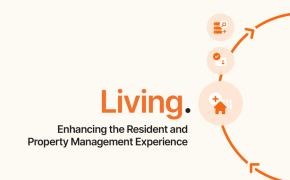74% of Renters Lose Trust When AI Isn’t Disclosed During Leasing Journey
The rental experience is entering a new era. Artificial intelligence has moved from abstract possibility to everyday reality, influencing how renters search for homes, schedule tours, and communicate with property managers. For many renters, AI represents speed, convenience, and around-the-clock access. For others, it raises questions about transparency, impersonality, and trust.
As more aspects of leasing become digitized, renters are weighing the trade-offs carefully. They want to know: Will I still be able to talk to a person when it matters most? Is my data being used responsibly? What role will AI play when decisions affect my budget or lease? These questions reflect broader societal debates about AI but take on sharper urgency in the housing market, where decisions directly impact financial stability and quality of life.
To understand how renters want AI and automation to shape the leasing experience, Rently partnered with the third-party platform Pollfish to survey 800 U.S. adults who have rented an apartment, condo, or single-family home. Conducted in September 2025, the Rently 2025 Report on AI in Leasing explores attitudes, priorities, and trust signals across AI-assisted search, touring, leasing, and support.
Key Findings
- • In the rental-home search, renters want AI that cuts through noise: 60% want recommendations matching their budget and needs, 55% want live availability and pricing, and 50% want suggested alternatives when a listing is no longer available.
- • Renters choose self-guided tours when access feels flexible and secure: after-hours access 50%, property info on the phone during the tour 49%, and secure entry with ID verification and one-time codes 46%.
- • Comfort with AI hinges on transparency and choice: 74% say comfort drops if AI use isn’t disclosed; 57% want human support available anytime and 47% want the ability to opt out.
- • Willingness to pay centers on safety and responsiveness: 42% would pay more for security monitoring and 37% for 24/7 maintenance support; most cap any added cost at $20 per month or less (64%), and only 5% would go over $60 per month.
- • When stakes are high, renters look to people: 71% would contact a person first when a problem arises, especially for rent negotiations, payment concerns, and disputes.
“The rental process isn’t just about square footage or price. It’s about how the experience feels,” said Merrick Lackner, CEO at Rently. “Renters want listings that are accurate, tours that are flexible, and support that’s responsive. AI can make those interactions faster and easier, but only when it’s transparent. Leasing technology that reduces friction while keeping people in control is what will define the next era of rental technology.”
Search Smarter, Not Harder: Renters Want AI to Do the Heavy Lifting
When renters begin looking for a new apartment, condo, or single-family home, the first hurdle is the search itself. Finding a home often starts with noise. Listings are duplicated, prices change, and renters burn time on units that are already gone. This is where they want AI to do real work that cuts through the clutter.
The data points to a specific brief. Renters want help matching to their budget and needs (60%), keeping availability and pricing current in real time (55%), and seeing credible alternatives when a unit is no longer available (50%). Together, those features turn a long list of results into a focused shortlist of homes that actually fit.
Renters are receptive to AI-powered recommendations when guidance feels useful rather than promotional. 78% say in-app recommendations from AI for additional matching rentals would be helpful, while only 22% would ignore them or view them as spam. The rule is simple. If the system explains why a listing appears and refreshes inventory in real time, the experience feels like a service. It is the proof point that brings people into the journey with momentum, which sets up what comes next: getting inside the door on their own time.

What Renters Need to Feel Comfortable With AI
As AI shows up in more parts of the leasing journey, comfort depends on control. Renters point to three guardrails: human support available at any time (57%), the ability to opt out of AI features (47%), and clear information about how their data is used (43%).
Comfort drops when AI is used without disclosure. 74% say they would feel less comfortable if AI use is not disclosed.
When sensitive information is involved, trust is mixed with a slight tilt toward distrust. 34% either completely or somewhat trust AI, 29% are neutral, and 38% either completely or somewhat distrust AI.
Clear disclosure and easy choices make AI feel like help rather than risk. Keep a visible path to a person, explain why recommendations appear, and show how information is handled so renters can decide how they want to use AI.


The New Open House: Secure, Self-Guided, and Always Available
Once renters have a focused shortlist, they want control over when and how to see a place. Self-guided touring resonates when it widens access and signals safety at every step. The strongest motivators are after-hours access (50%), property information available on the phone during the tour (49%), and secure entry with ID verification and one-time codes (46%). Together, these features describe a touring experience on the renter’s schedule, with key details in hand and entry that feels protected.

Safety Sells: The AI and Smart Features Renters Are Willing to Pay For
Renters favor paying for services that increase security and speed up fixes. 42% of respondents say they would pay more for security monitoring, and 37% say they would pay more for 24/7 maintenance support. These are everyday assurance products. They keep buildings safer and resolve issues faster, which renters feel immediately. Smart locks and secure access follow at 33%, and instant rent reminders and automated payment portals at 28%.
Price sensitivity is real and defined. Nearly two-thirds (64%) cap willingness at $20 or more on top of rent per month, and only 5% would exceed $60. Asked why they would pay more, renters most often cite saving money elsewhere, such as lower utility bills or fewer fees (59%), followed by extra security and safety benefits (43%), and time savings, including faster move-ins and quicker issue resolution (29%).
Together, these responses point to a clear pattern. Renters see the value of technology in peace of mind and faster fixes, and they balance that interest with a modest tolerance for added cost. Their interest centers on features that make communities feel safer and reduce downtime, confirming that reassurance and responsiveness drive willingness to pay.

When It Matters Most, Renters Want to Call a Person
Renters still expect a person for moments that require judgment. 71% say they would speak with a person first when problems arise, while 13% would start with a virtual assistant. Preference for people is strongest when money, contracts, or conflict are in play, including rent negotiations or lease renewals (73%), concerns or issues regarding payment (71%), and conflict management (68%).
Renters are not rejecting AI; they simply have a clear line for when a person should step in. A visible human backstop protects the experience when stakes rise. The perfect balance describes the operating model renters are asking for: reliable, transparent, and human when needed.

AI Shaping the Next Chapter of Leasing
AI has moved beyond being a future possibility in housing; it now has a clear and growing role in the leasing experience. Renters recognize its value when it streamlines complex searches, keeps information accurate in real time, and makes access to properties safer and more convenient. These are not small improvements; they directly impact how quickly and confidently renters can secure a home.
At the same time, the survey shows that trust is fragile when sensitive information or high stakes decisions are involved. Renters want to know when AI is being used, how their data is protected, and where the option to speak with a person remains available. Transparency and choice are not extras; they are the baseline expectations for any technology shaping financial and personal decisions.
What renters are signaling is not rejection of AI, but a desire for balance. They want technology to handle the routine, reduce the hassle, and speed up resolutions, while people step in when money, contracts, or disputes are on the line. That dual expectation defines the next chapter of leasing: an operating model where automation builds efficiency and clarity, while human support provides judgment and trust.
Finally, renters are pragmatic. They are willing to pay more for peace of mind, especially for features tied to security and responsiveness. But tolerance for added costs is limited, and value must be felt immediately in daily life.
“Renters want more than convenience; they want control,” said Merrick Lackner, CEO at Rently. “AI can deliver faster searches, real-time updates, and safer communities, but its real value is empowering renters to make better decisions. When paired with human support, technology doesn’t just streamline leasing, it elevates the entire renter experience.”




